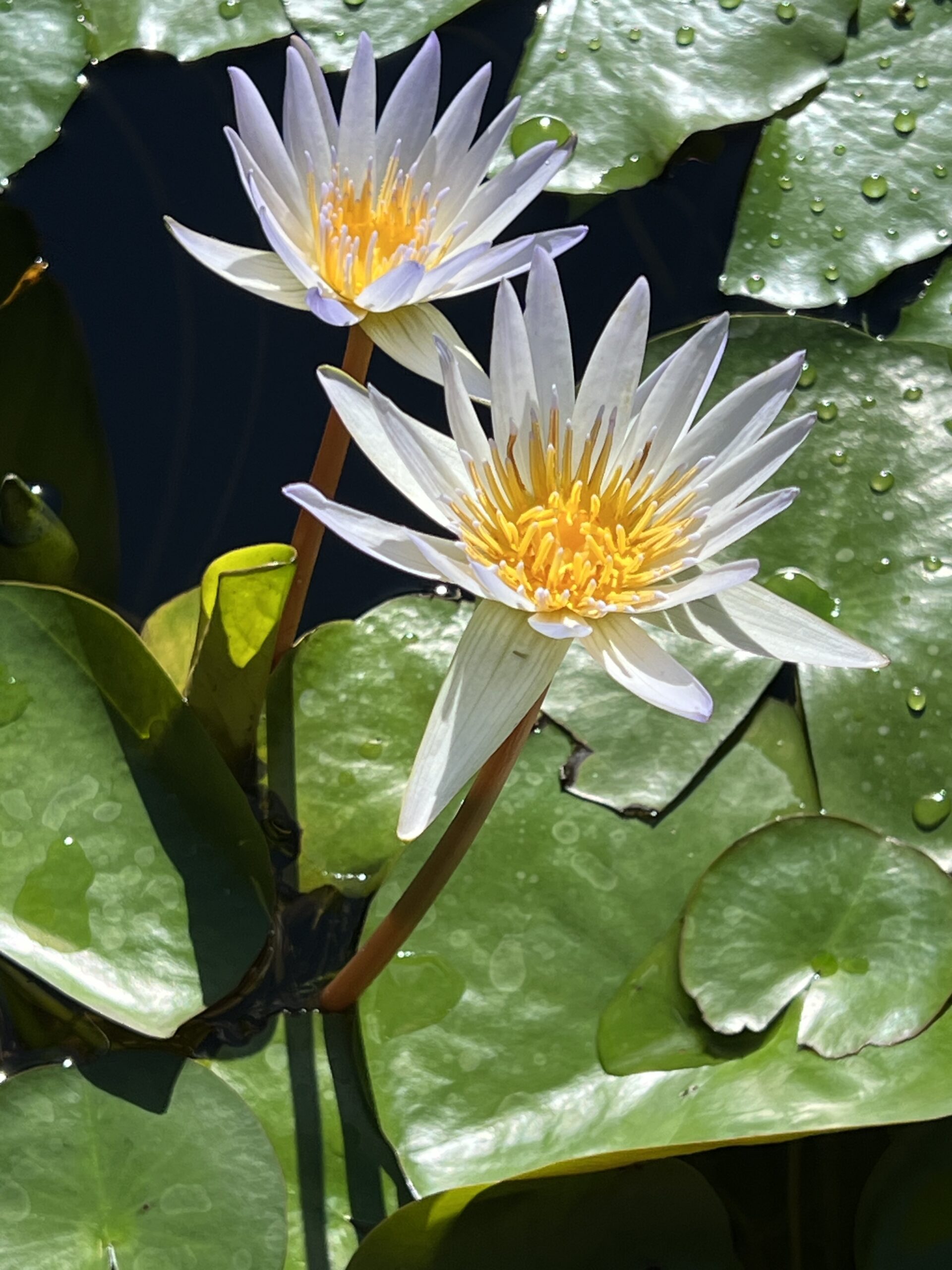“A ’ohe hana nui ke alu ’ia” (No work is too big when shared by all.)
There’s a lot of give-and-take on the Big Island. Often I’ll arrive at the beach to see a big bunch of bananas suspended on a peg for all to help themselves. No note. No “honesty pot” to leave money in exchange for what we take. Depending on the season, one may find a bowl of tangerines, lemons, limes, papayas or pineapples, and even coconuts on offer to all who walk by. Yesterday I came home to a small clump of avocados placed in the middle of our walkway, just inside the gate. I suspect they were put there by a Hawaiian friend, an artist, known for his iconic paintings of island life, and who knows that I can always use and share avocados, a favorite fruit. Such as in this morning’s smoothie. So my first idea for this week’s theme was to find a Hawaiian word for this system of sharing whatever surplus one has, no strings attached. But rather, as internet surfing is wont to produce, the word that came up in my web search was “Laulima”. With a slightly different meaning than the Hawaiian verb for sharing that I had intended to focus on, Laulima nonetheless presented itself as a worthy topic. According to the Hawaiian Convention Center Blog (HCC), whose motto is “Where Business and Aloha Meet”, “Laulima is a pillar principle within the Hawaiian community”:
“In order to achieve our goals, working together is imperative. Teamwork is stressed. Individual achievement is encouraged, but success is found in the contributions of many hands working together. ’Laulima’ embodies the essence of what it means to live aloha.
“As it applies today, regardless of what your job entails, we are all a vital part of our collective success...’Laulima’ transcends into our work, family, social and economic behaviors. Placing emphasis on ’Laulima’ in any situation will yield great benefits.” In the English language I believe this translates to “many hands make light work”.
Since living aloha is my goal, laulima seemed a natural focus for this week. It felt good to pay forward my friend’s generosity by offering avocados to the people around me. And this in turn reminded me of a principle I learned in life coaching called “living your legacy”. The principle explains that, wittingly or otherwise, I live — and therefore leave — a legacy with every choice I make, every action I take. I may never learn to converse in the Hawaiian language, with its monosyllabic strings of vowels and apostrophes, but I can learn to live it.
Living the principle of ohana, for instance, means seeing the people around me as nieces or nephews, uncles or aunties. As extended family. In so doing, I am more apt to lend a hand when I perceive a need, however peripherally. Practicing kuleana, I take responsibility for the environment, the communal “back yard” of our planet, and that means participating in community initiatives like reducing the amount of single use plastic waste we create. My friend at Upcycle Hawaïi recently posted the statistic that they’d diverted over 30,000 square feet and just under 500 pounds of plastic out of the landfill sine January 2018. Again, this is a team effort between mostly volunteers who work together for the benefit of the entire island. (I’m still looking into ways to recycle paper, and of course, keeping my compostables out of the landfill). Hō’ihi also echoes the need to respect others’ space and dignity, helping them live their best lives, as my friend is doing with her ’Tiny House’ initiatives that recruit students and even potential homeowners to help rebuild the community devastated by Kilauea.
Laulima asks me to recognize, respect and respond in some hands-on way to the needs of the greater community, wherever I happen to be. Indeed, such a principle is alive and well in other Indigenous cultures. In South Africa, “Shosholoza”, originally a call-and-response work song introduced by Zimbabwean gold and diamond miners, speaks of the solidarity and teamwork needed to transcend adversity. Loosely translated as “going forward together”, Nelson Mandela once described Shosholoza as “a song that compares the apartheid struggle to the motion of an oncoming train”. It is now considered by many to be the unofficial anthem of South Africa, and is frequently chanted during sporting events and public actions. What we can learn from this in today’s Western cultures is that we cannot go forward without lending a hand to those among us who are struggling to keep up, those less fortunate in their access to education, careers, health care, or housing. Quite often they are the people and cultures that can show us a better way. I’ll buy a ticket on that train.
P.S. This is my 26th blog post, meaning I am half way to my goal. Yay me. Mahalo nui loa for coming along for this particular ride.
